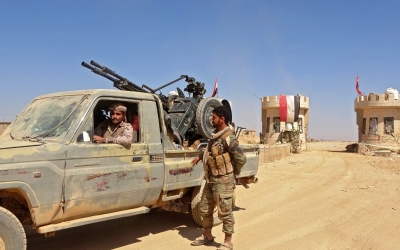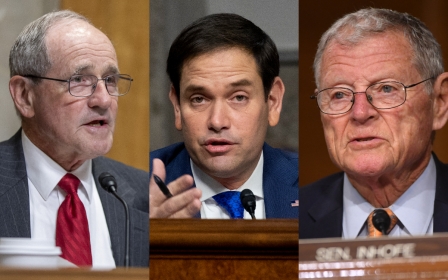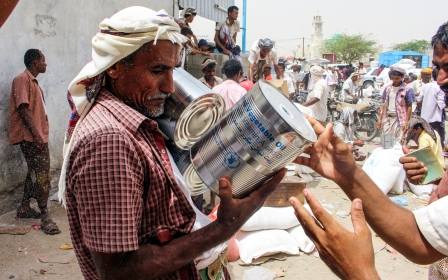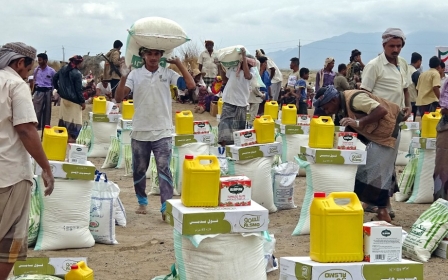US sanctions Houthi commanders in Yemen for 'worsening humanitarian crisis'
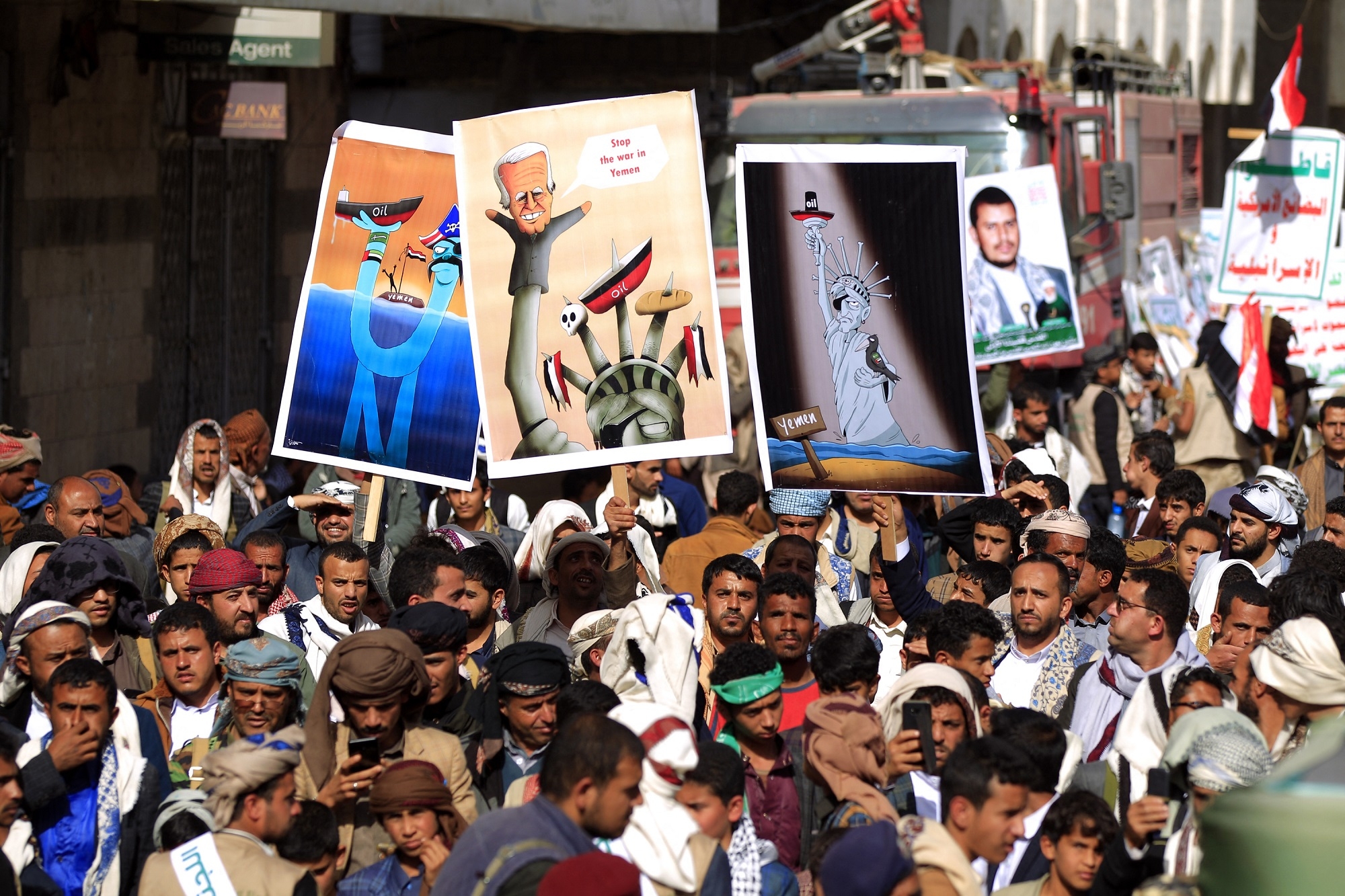
The Biden administration imposed sanctions on two Houthi commanders on Tuesday, accusing the Yemeni rebels of prolonging the conflict and carrying attacks against civilians and neighbouring countries "to advance the Iranian regime’s destabilizing agenda".
The US Treasury Department announced the sanctions against Mansur al-Saadi, the Houthi naval forces chief of staff, and Ahmad Ali Ahsan al-Hamzi, commander of the Yemeni air force and air defence forces, on Tuesday.
The measures, which come weeks after the new US administration removed the Houthis from the US list of foreign terrorist organisations, would freeze the Houthi officials' assets and bar US citizens from doing business with them.
The US administration had said that it reversed the blacklisting of the Houthis to ease the delivery of humanitarian aid into areas under their control, but it continued to condemn the rebels and cautioned them to cease their ongoing offensive on the city of Marib.
Both the Treasury and State departments released statements on the sanctions that heavily referenced and criticised Iran for its involvement in the conflict.
New MEE newsletter: Jerusalem Dispatch
Sign up to get the latest insights and analysis on Israel-Palestine, alongside Turkey Unpacked and other MEE newsletters
"Since the onset of the conflict in Yemen, the Houthis, with the support of the Iranian regime, have waged a bloody war against the internationally recognized Yemeni government using ballistic missiles, explosives, naval mines, and unmanned aerial vehicles (UAVs) to attack bases, population centers, infrastructure, and nearby commercial shipping," the Treasury said.
It accused Saadi of dispensing naval mines that indiscriminately target ships, including those carrying humanitarian assistance, and it said Hamzi is responsible for the Houthis' drone attacks.
"The United States condemns the destruction of civilian sites by the Houthi militants designated today. These individuals command forces that are worsening the humanitarian crisis in Yemen," said Andrea M Gacki, director of the Office of Foreign Assets Control.
"The United States remains committed to promoting accountability of Houthi leadership for their actions, which have contributed to the extraordinary suffering of the Yemeni people."
According to the US government, both targeted Houthi officials received training in Iran.
"Iran's involvement in Yemen fans the flames of the conflict, threatening greater escalation, miscalculation, and regional instability," Secretary of State Antony Blinken said in a statement on Tuesday.
"Ansarallah uses Iranian weapons, intelligence, training, and support to conduct attacks threatening civilian targets and infrastructure in Yemen and Saudi Arabia."
Ansarallah is an alternate name for the Houthi rebels.
Commitment to Saudi security
US President Joe Biden announced last month that Washington is halting support for Saudi offensive operations in Yemen, fulfilling a campaign promise that he had shared with all Democratic presidential candidates.
Still, the administration has repeatedly pledged to remain committed to the kingdom's national security amid congressional calls for clarifying the details of the new Yemen policy.
The Saudi-led offensive in Yemen started in 2015 when the kingdom and its regional allies embarked on a bombing campaign to restore the government of President Abd Rabbuh Mansour Hadi, who had been toppled by the Houthis.
The war has killed more than 230,000 people, caused outbreaks of disease and brought Yemen to the verge of famine, in what the United Nations calls the world's worst humanitarian crisis.
"We will ensure Saudi Arabia and our regional partners have the tools they need to defend themselves, including against threats emanating from Yemen that are carried out with weapons and support from Iran," Blinken said on Tuesday.
"At the same time, the United States is working diligently at senior levels alongside the United Nations and others to bring an end to this conflict."
Middle East Eye delivers independent and unrivalled coverage and analysis of the Middle East, North Africa and beyond. To learn more about republishing this content and the associated fees, please fill out this form. More about MEE can be found here.


